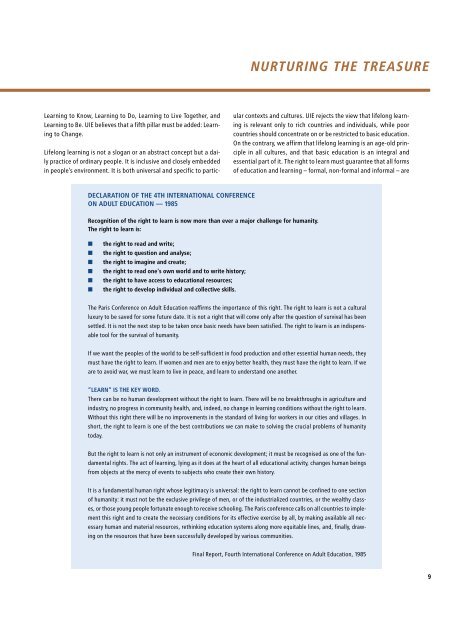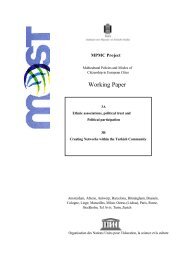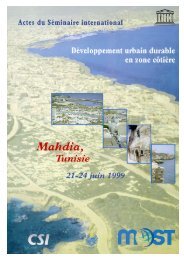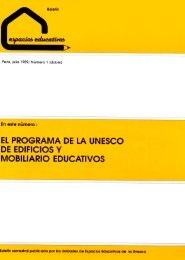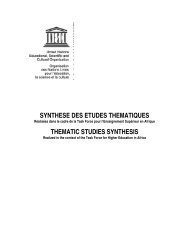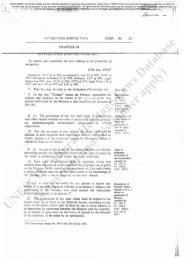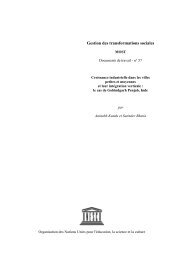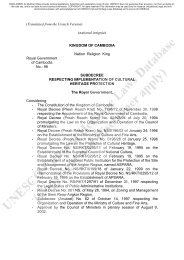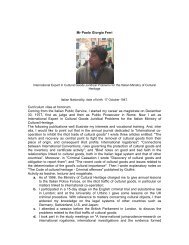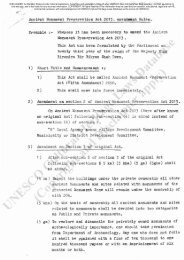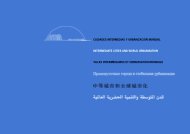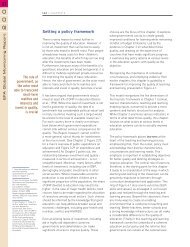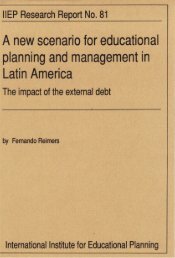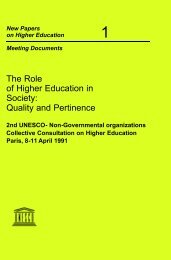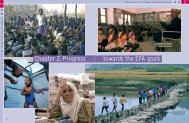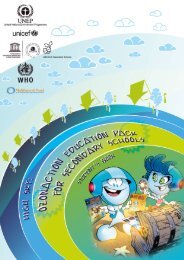NURTURING THE TREASURE NURTURING THE ... - Unesco
NURTURING THE TREASURE NURTURING THE ... - Unesco
NURTURING THE TREASURE NURTURING THE ... - Unesco
Create successful ePaper yourself
Turn your PDF publications into a flip-book with our unique Google optimized e-Paper software.
<strong>NURTURING</strong> <strong>THE</strong> <strong>TREASURE</strong><br />
Learning to Know, Learning to Do, Learning to Live Together, and<br />
Learning to Be. UIE believes that a fifth pillar must be added: Learning<br />
to Change.<br />
Lifelong learning is not a slogan or an abstract concept but a daily<br />
practice of ordinary people. It is inclusive and closely embedded<br />
in people’s environment. It is both universal and specific to particular<br />
contexts and cultures. UIE rejects the view that lifelong learning<br />
is relevant only to rich countries and individuals, while poor<br />
countries should concentrate on or be restricted to basic education.<br />
On the contrary, we affirm that lifelong learning is an age-old principle<br />
in all cultures, and that basic education is an integral and<br />
essential part of it. The right to learn must guarantee that all forms<br />
of education and learning – formal, non-formal and informal – are<br />
DECLARATION OF <strong>THE</strong> 4TH INTERNATIONAL CONFERENCE<br />
ON ADULT EDUCATION — 1985<br />
Recognition of the right to learn is now more than ever a major challenge for humanity.<br />
The right to learn is:<br />
■<br />
■<br />
■<br />
■<br />
■<br />
■<br />
the right to read and write;<br />
the right to question and analyse;<br />
the right to imagine and create;<br />
the right to read one's own world and to write history;<br />
the right to have access to educational resources;<br />
the right to develop individual and collective skills.<br />
The Paris Conference on Adult Education reaffirms the importance of this right. The right to learn is not a cultural<br />
luxury to be saved for some future date. It is not a right that will come only after the question of survival has been<br />
settled. It is not the next step to be taken once basic needs have been satisfied. The right to learn is an indispensable<br />
tool for the survival of humanity.<br />
If we want the peoples of the world to be self-sufficient in food production and other essential human needs, they<br />
must have the right to learn. If women and men are to enjoy better health, they must have the right to learn. If we<br />
are to avoid war, we must learn to live in peace, and learn to understand one another.<br />
”LEARN” IS <strong>THE</strong> KEY WORD.<br />
There can be no human development without the right to learn. There will be no breakthroughs in agriculture and<br />
industry, no progress in community health, and, indeed, no change in learning conditions without the right to learn.<br />
Without this right there will be no improvements in the standard of living for workers in our cities and villages. In<br />
short, the right to learn is one of the best contributions we can make to solving the crucial problems of humanity<br />
today.<br />
But the right to learn is not only an instrument of economic development; it must be recognised as one of the fundamental<br />
rights. The act of learning, lying as it does at the heart of all educational activity, changes human beings<br />
from objects at the mercy of events to subjects who create their own history.<br />
It is a fundamental human right whose legitimacy is universal: the right to learn cannot be confined to one section<br />
of humanity: it must not be the exclusive privilege of men, or of the industrialized countries, or the wealthy classes,<br />
or those young people fortunate enough to receive schooling. The Paris conference calls on all countries to implement<br />
this right and to create the necessary conditions for its effective exercise by all, by making available all necessary<br />
human and material resources, rethinking education systems along more equitable lines, and, finally, drawing<br />
on the resources that have been successfully developed by various communities.<br />
Final Report, Fourth International Conference on Adult Education, 1985<br />
9


